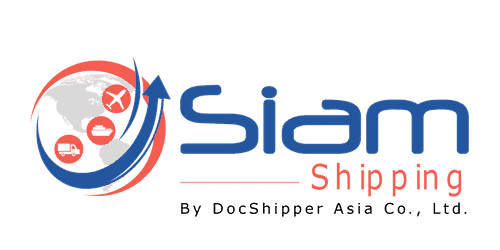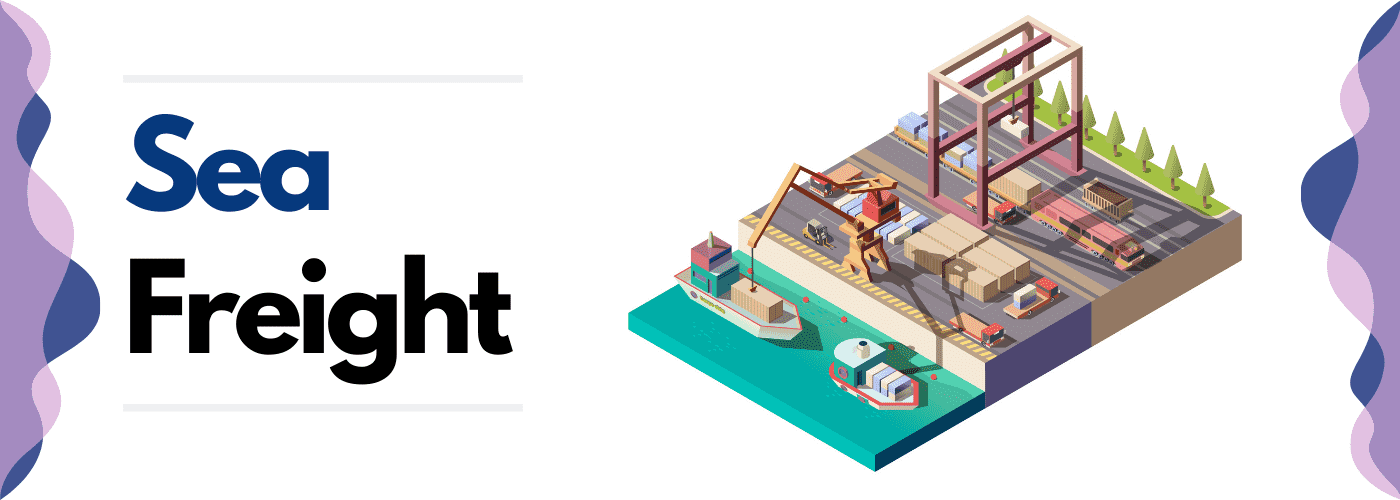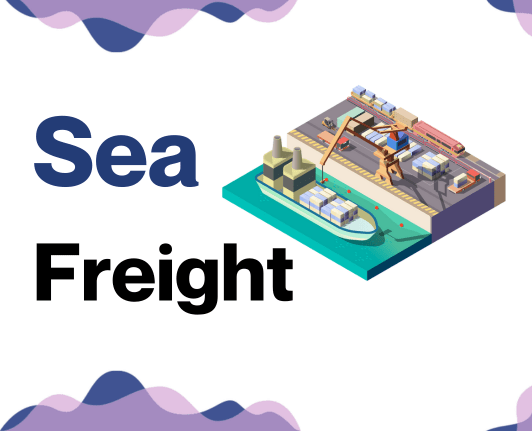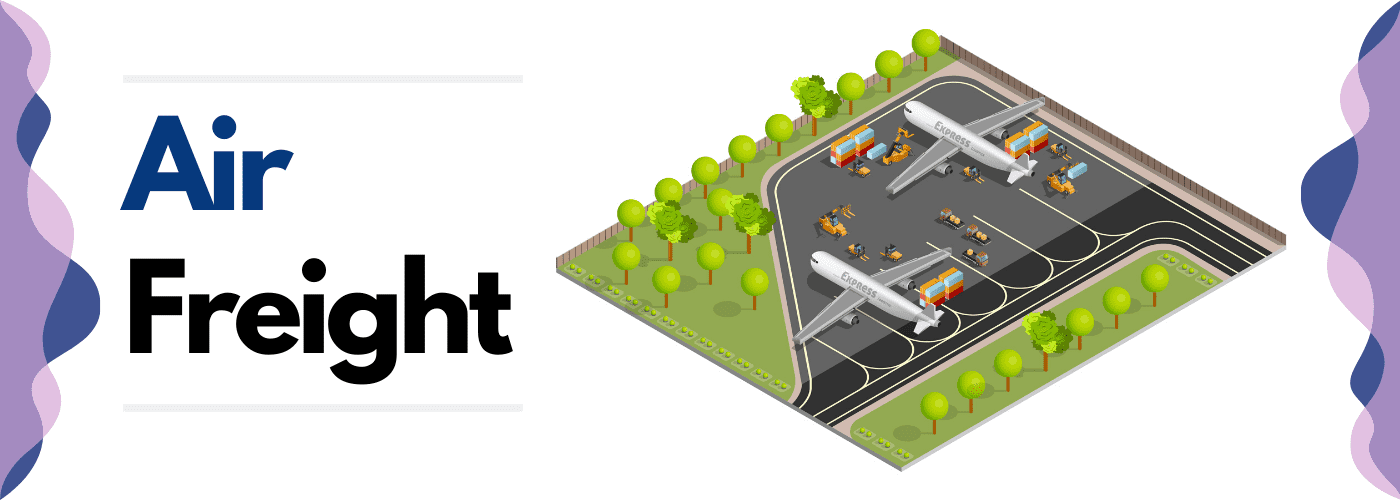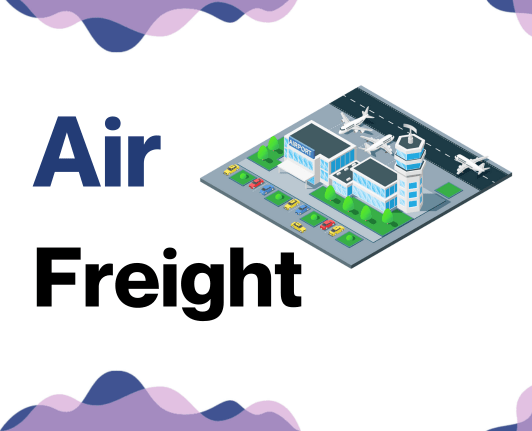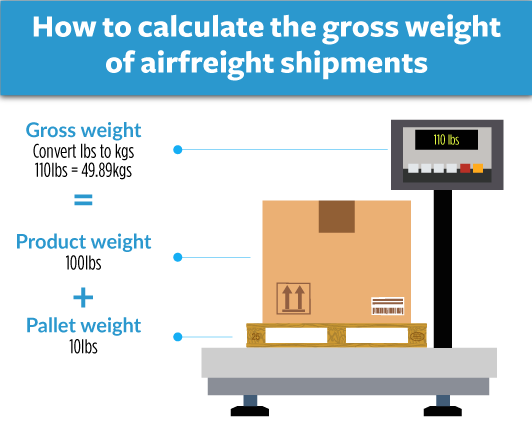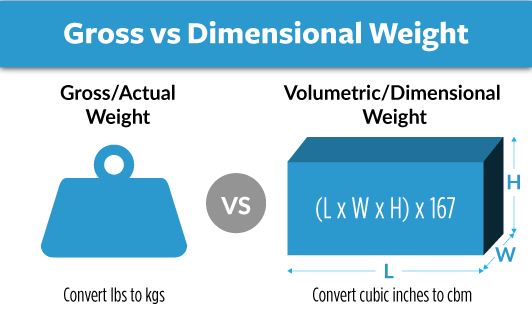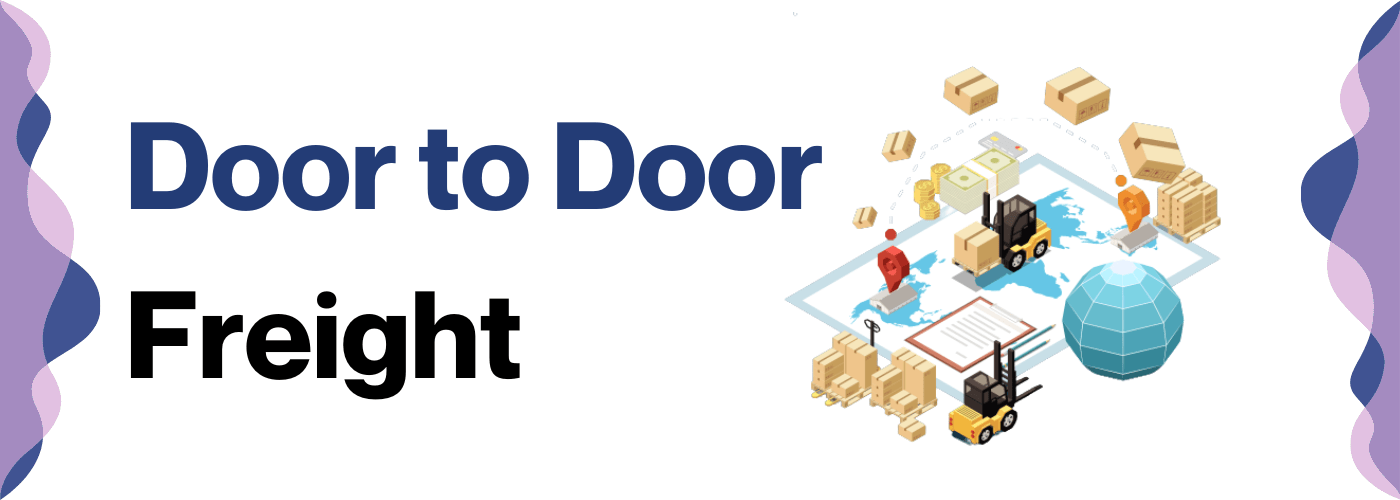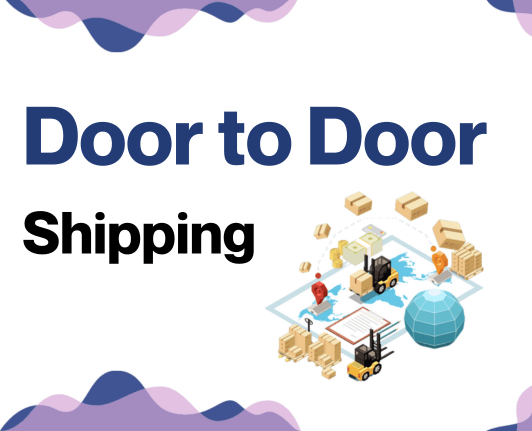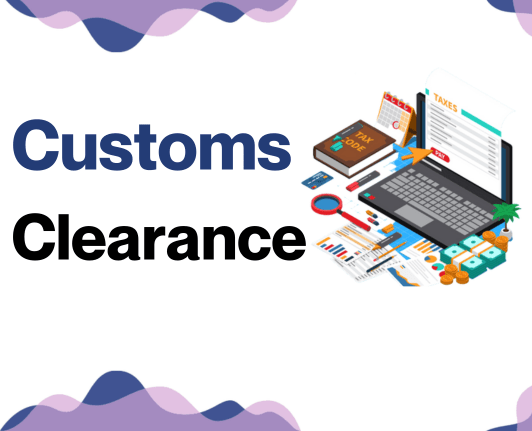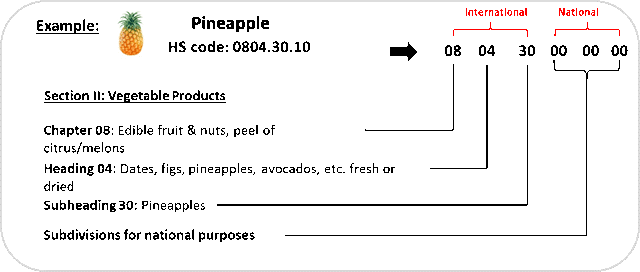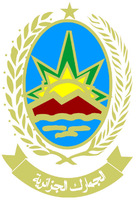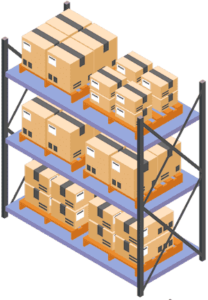Ever thought shipping from the vibrant bazaars of Thailand to the sunny sands of Algeria could be as spicy as a hot bowl of Tom Yum soup? Dealing with freight between these two nations can often be a tricky affair, tangled in the complexity of understanding rates, transit times, and demystifying customs regulations.
This guide promises to dissolve these knots by shedding light on various types of freight options – air, sea, road, or rail. We'll sketch the route map through customs clearance and swiftly sweep through the terrain of duties and taxes. Tailor-made for businesses, we'll offer invaluable advice that can help streamline your international shipping operations.
If the process still feels overwhelming, let DocShipper handle it for you! As an international freight forwarder, we transform these challenges into success by taking care of every step of your shipping journey.
Which are the different modes of transportation between Thailand and Algeria?
Choosing the right mode of transport for shipments from Thailand to Algeria feels like planning a trip - exciting but full of critical decisions. You're dealing with a 10,762 kilometer journey! Air freight may initially seem fast and uncomplicated, but is it the most cost-effective and efficient method? Or should you consider sea-route, a bit slower, yet might save a few bucks? As we dive into this guide, we’ll unravel the complexities of these choices, just like untying a knotted travel route, and help you align them with your business's unique shipping needs. Let the journey begin!
How can Siam Shipping help?
Shipping from Thailand to Algeria? Let DocShipper take the helm. We offer comprehensive freight forwarding services, tackling everything from transport organization to customs clearance. Got a question or need an estimate? Reach out to our consultants – they're just a call away and ready to assist you, free of cost, 24/7.
Siam Shipping Tip: Consider ocean freight if:
- You are shipping large volumes or bulky items, as sea freight offers the most space at a cost-effective rate.
- You're not racing against the clock. Ocean freight takes its sweet time, especially when stacked up against other transport methods.
- Your supply chain is linked up with big-name ports. Think of it as the VIP lane on the maritime superhighway.
Sea freight between Thailand and Algeria
In the dynamic world of international trade, the oceanic route stands as a vital link between Thailand and Algeria, connecting their bustling industrial hubs. Picture vessels, brimming with high-volume goods, setting sail from Thailand's deepwater Port of Laem Chabang and tracing a unidirectional path to Algeria's principal maritime gateway: the Port of Algiers. Yes, sea freight, with its stomachable cost and exceptional cargo capacity, emboldens this Thai-Algerian trade soup, albeit at a leisurely pace.
But here's the catch: shipping between these nations isn't a walk in the park. Businesses often grapple with blunders, from unanticipated red tape to surprising shipping caveats. However, every knot has an unraveler: diligent adherence to specific best practices and guidelines can create a smoother, obstacle-free shipping experience. This segment peels back the layers to unfold the do's, don'ts, and 'watch-outs' in this sphere. Like a knight walking into a battle, equip yourselves for the unforgiving terrain of Thai-Algerian oceanic shipments. Your shipping venture's success might just be a page turn away.
Main shipping ports in Thailand
Laem Chabang Port
Location and Volume: Situated in Chonburi, Laem Chabang Port is the largest port in Thailand, boasting a shipping volume of 7.6 million TEU annually.
Key Trading Partners and Strategic Importance: As the main deep-sea port, Laem Chabang handles the majority of Thailand's international trade with key partners such as China, the US, and Japan. Its strategic location near Bangkok, combined with a well-connected road and rail network, enhances its import-export efficiency.
Context for Businesses: If you're thinking of reaching markets in Southeast Asia, this port is a prime choice given its high volume and robust network of sea routes.
Port of Bangkok
Location and Volume: Located along the Chao Phraya River, the Port of Bangkok is the second busiest port in Thailand, handling 1.5 million TEU each year.
Key Trading Partners and Strategic Importance: Serving key trade routes to Asian, American and European markets, the port has a significant role in supporting the capital's economy through import-export activities.
Context for Businesses: If your business relies on quick turnaround and flexibility, the Port of Bangkok's proximity to the city and its multimodal transport network may serve your interests well.
Map Ta Phut Industrial Port
Location and Volume: Positioned in Rayong on the Gulf of Thailand, the Map Ta Phut Industrial Port focuses on industrial goods, managing around 950,000 TEU annually.
Key Trading Partners and Strategic Importance: This port plays a pivotal role in the regional petrochemical industry, serving key business partners in Asia and the Middle East.
Context for Businesses: If your operations involve petrochemicals or heavy industry, Map Ta Phut Industrial Port could be a vital part of your supply chain given its specialized handling capabilities.
Sattahip Commercial Port
Location and Volume: Sattahip Commercial Port, located in Chonburi province, caters to lower volumes of cargo, handling just under 300,000 TEU per year.
Key Trading Partners and Strategic Importance: Though smaller compared to its counterparts, Sattahip navigates trade with nearby Asian countries and engages in fisheries exports, having been strategically positioned to serve Thailand's Eastern Economic Corridor.
Context for Businesses: If your business deals with the fisheries sector or targets modest-size markets within Asia, leveraging Sattahip Commercial Port can offer more focused, specialized logistics services.
Sri Racha Harbors
Location and Volume: This small yet significant port in Chonburi province handles about 150,000 TEU each year.
Key Trading Partners and Strategic Importance: Sri Racha Harbor mainly accommodates regional trade, emphasizing connectivity with neighboring countries in Southeast Asia.
Context for Businesses: Small to medium enterprises engaged in regional trade may find Sri Racha Harbor attractive, primarily thanks to its strategic geographic location and more personalized service.
Songkhla Deep-sea Port
Location and Volume: Nestled in the southern region of Thailand, Songkhla Deep-sea Port manages around 100,000 TEU annually.
Key Trading Partners and Strategic Importance: Primarily catering to businesses in southern Thailand and Malaysia, Songkhla Deep-sea Port is the main gateway for regional trade within the Thai-Malay peninsula.
Context for Businesses: If your target market includes southern Thailand and Malaysia, Songkhla Deep-sea Port may be an essential part of your logistics strategy given its strategic location and deep-sea access.
Main shipping ports in Algeria
Port of Algiers:
Location and Volume: The Port of Algiers is centrally located on the Mediterranean coast, making it the main maritime entrance to Algeria. It reported a shipping volume of 13 million tonnes in 2020.
Key Trading Partners and Strategic Importance: The port has strong ties with European countries like France, Italy, and Spain. It also serves as a strategic hub for the entire Maghreb region.
Context for Businesses: If you’re looking to tap into North Africa and Europe, the Port of Algiers is an excellent starting point due to its geographical location and vast network of routes.
Port of Oran
Location and Volume: Situated west of Algiers along the Mediterranean Sea, the Port of Oran sees a significant portion of Algeria's total shipping volume, with over 10 million tonnes in 2020.
Key Trading Partners and Strategic Importance: Oran's trading partners comprise mainly of countries in Western Europe. It's a crucial port for the petroleum and natural gas industries, given Algeria's rich oil reserves.
Context for Businesses: Businesses involved in the oil and gas industry will find Oran particularly beneficial due to its capacity for handling petrochemical cargo.
Port of Arzew
Location and Volume: The Port of Arzew, located on Algeria's western coast, distinguishes itself by focusing on the export of oil and gas, with a volume of nearly 25 million tons of cargo per year.
Key Trading Partners and Strategic Importance: The port's location allows easy access to European markets and plays a pivotal role in Algeria's energy exports.
Context for Businesses: Businesses in the energy sector eyeing the European markets may consider the Port of Arzew as a key logistic strategy due to its export capacity and location.
Port of Annaba
Location and Volume: Located in the northeast, the Port of Annaba is one of Algeria’s oldest ports and moved more than 11.5 million tonnes in cargo during 2020.
Key Trading Partners and Strategic Importance: The port often deals with raw materials like steel and phosphates, with European countries as its main trading partners.
Context for Businesses: Annaba's emphasis on raw materials makes it an optimal choice for businesses in industries such as construction, manufacturing, and chemical production, looking to facilitate their logistics in North Africa.
Port of Skikda
Location and Volume: Also situated on the northeastern coast, the Port of Skikda is known for its oil refineries and handled over 21 million tonnes of cargo in 2020.
Key Trading Partners and Strategic Importance: This port is critical for businesses involved in energy products, with strong ties to European markets.
Context for Businesses: If your business is involved in energy or industrial products, leveraging the Port of Skikda could streamline your supply chain due to its specialization and capacity for handling oil and industrial cargo.
Port of Bejaia
Location and Volume: On Algeria's northeastern Mediterranean coast lies the Port of Bejaia, a bustling port that oversaw more than 9 million tonnes of cargo in 2020.
Key Trading Partners and Strategic Importance: Bejaia has a diverse range of trading partners, making it a versatile option for businesses.
Context for Businesses: Given its versatility and strong connections, the Port of Bejaia constitutes an excellent option for businesses keen to explore a broad range of markets via sea freight in the Mediterranean.
Please keep in mind that the strategic choice of a port greatly depends on the nature of your business, target markets, and specifications of your cargo. It can be beneficial to seek advice tailored to your specific situation.
Should I choose FCL or LCL when shipping between Thailand and Algeria?
Puzzled about the best sea freight option for your Thailand-Algeria shipping needs? Understanding the differences between Full Container Load (FCL) and Less than Container Load (LCL), also known as consolidation, is vital. Each has its perks and potential drawbacks that could tip the scale of cost-efficiency, delivery time, and ultimate success of your shipment. This guide aims to clear any confusion and help you make an informed, successful shipping decision. Ready to dive in? Let's compare and conquer!
LCL: Less than Container Load
Definition: LCL shipping, or Less than Container Load, refers to a freight shipping method where multiple shippers' goods coexist in the same container. This is an efficient choice when you don't have enough cargo to fill an entire container.
When to Use: LCL is the right move when your cargo doesn't meet the volume for a Full Container Load (FCL), often less than 13/14/15 CBM. Here, flexible scheduling and price advantages stand out, especially for businesses dealing with lower volumes.
Example: Suppose a business in Thailand needs to send 10 pallets of machine parts to Algeria. Unfortunately, it doesn't make up a full container. They would choose LCL shipment, saving on costs by sharing the container space with other businesses.
Cost Implications: LCL has cost benefits for smaller shipments. You only pay for the space you occupy. However, it can include additional charges like deconsolidation fees at the end destination. Remember, the preliminary lcl shipping quote may not cover custom duties or taxes, which are vital elements in the final lcl freight costs.
FCL: Full Container Load
Definition: FCL shipping, or Full Container Load, is a shipment method wherein the goods of one shipper occupy a whole container.
When to Use: FCL becomes an economic choice for high-volume shipping, as it is generally cheaper when you have cargo more than 13/14/15 CBM. And it ensures safety as the FCL container is sealed at origin and remains unchanged until delivery.
Example: Consider a business exporting automotive parts from Thailand to Algeria. If they have a large quantity that can fill a 20'ft or 40'ft FCL container, it would be cost-effective and secure to choose FCL. The container would be loaded and locked in Thailand and only get opened upon arrival in Algeria, reducing risk of damages.
Cost Implications: When obtaining an FCL shipping quote, remember that the cost is fixed regardless of whether the container is full or not. So, ensuring you use your container space effectively is integral to getting the most value from FCL. The more you ship, the less you pay per unit. Furthermore, customs charges could be lower as you're shipping a full container of similar goods.
Unlock hassle-free shipping
Achieving no-fuss cargo shipping is DocShipper's prime mission. Our skilled ocean freight experts make the choice between consolidation or a full container simple, considering variables like your shipment's volume, budget, and desired delivery speed. Threading the needle between Thailand and Algeria has never been easier. Interested? Reach out now for your free estimation and take the first step towards a streamlined shipping experience.
How long does sea freight take between Thailand and Algeria?
The average sea freight shipping time between Thailand and Algeria is typically around 25-30 days. However, it's important to keep in mind that this transit time can change due to various factors such as the specific ports used, the weight of the shipment, and the nature of the goods being shipped. Therefore, for a customized quote that suits your specific needs, it is highly recommended to consult with a freight forwarder like DocShipper.
Here's a text-only table illustrating the average transit times for sea freight between the main ports in both countries:
| Ports in Thailand | Ports in Algeria | Average Transit Time |
| Laem Chabang | Port of Algiers | 28 |
| Bangkok | Port of Annaba | 27 |
| Songkhla | Port of Oran | 28 |
| Sattahip | Port of Bejaia | 28 |
*Note: These times are average estimates and depending on various factors might not be accurate for your particular shipment.
How much does it cost to ship a container between Thailand and Algeria?
Ocean freight rates between Thailand and Algeria can range widely, often making it challenging to pin down a specific shipping cost per CBM. That's because a multitude of factors come into play, from the Point of Loading and Destination to the carrier chosen, the nature of the goods, and monthly market fluctuations. However, don't be daunted! Our seasoned shipping specialists are committed to working closely with you, unravelling the intricacies of your unique freight needs. We provide custom quotes on a case-by-case basis to ensure you receive the most favorable rates, tailored perfectly to your specific logistics demands. Shipping need not be a hassle; we're here to make it simple.
Special transportation services
Out of Gauge (OOG) Container
Definition: An OOG container is a unique shipping option designed specifically for out of gauge cargo, which exceeds the standard dimensions of regular shipping containers.
Suitable for: OOG is ideal for large equipment, machinery, and items with irregular shapes that cannot fit a standard container.
Examples: Constructions materials, large machinery like turbines, construction or farm vehicles, or oversized metal structures.
Why it might be the best choice for you: If your business deals with equipment or goods that exceed standard container measurements, an OOG container is your best bet. It delivers flexibility and ensures safe and secure transport of your large-scale cargo from Thailand to Algeria.
Break Bulk
Definition: Break bulk is a shipping method where goods are individually loaded onto the ship rather than in containers. This allows flexibility in handling various types of cargo sizes and weights.
Suitable for: Generally suited for loose cargo load that is oversized, heavyweight, or difficult to containerize.
Examples: Large pipes, wooden logs, equipment, construction materials, or machinery parts.
Why it might be the best choice for you: If your cargo is exceptionally large or heavy, break bulk might be your ideal option. It allows direct loading onto the vessel, reducing the need for complex packaging.
Dry Bulk
Definition: In dry bulk shipping, unpackaged goods like grain, coal, or iron ore are loaded directly into the ship's hold.
Suitable for: Commodities in large quantities such as minerals, agricultural products, or any other granular materials.
Examples: Sand, cement, grain or coal.
Why it might be the best choice for you: If your business ships raw materials or loose, unpackaged goods in large volumes from Thailand to Algeria, then dry bulk could be a cost-effective and efficient choice.
Roll-on/Roll-off (Ro-Ro)
Definition: Ro-ro vessels are ships designed for wheeled cargo like cars, trucks, or trailers that drive on and off the ship on their wheels or using a platform vehicle.
Suitable for: Vehicles and heavyweight cargoes on wheels.
Examples: Cars, trucks, tractors, trailers, buses.
Why it might be the best choice for you: If your business involves shipping motor vehicles or heavy machinery on wheels, a ro-ro vessel is an excellent option. It simplifies handling, reducing the risk of damage to your goods while loading and unloading.
Reefer Containers
Definition: Reefer containers are refrigerated shipping containers for goods that need to be transported at controlled temperatures.
Suitable for: Perishable goods like seafood, fruits, vegetables, meat, dairy products, or medicinal products.
Examples: Fresh produce from Thailand, dairy products, pharmaceuticals, or seafood.
Why it might be the best choice for you: If your cargo needs a temperature-controlled environment while shipping from Thailand to Algeria, opting for reefer containers is essential. It enables the fresh and safe delivery of temperature-sensitive goods.
Finally, remember that no job is too big or small for us at DocShipper. We're here to simplify your logistics experience and help you find the most suitable sea freight shipping option according to your unique needs. Please don't hesitate to reach out to us for a free shipping quote. We'll provide you with a detailed quotation in less than 24 hours.
Siam Shipping Tip: Consider Air freight if:
- Time's ticking and you can't wait. Air freight is like the express train of shipping; it's the quickest way to get your stuff from A to B.
- You're not shipping a warehouse. If your cargo is under 2 CBM, air freight is a snug fit for your smaller haul.
- Your supply chain ends somewhere off the beaten path. Airports are everywhere, so you can get your goods to those hard-to-reach spots.
Air freight between Thailand and Algeria
Air freight from Thailand to Algeria combines speed, reliability, and cost-effectiveness like no other shipping method. Ever wonder how your favorite Thai silk shirt or practical electronic gadgets reach you quickly, sans any hassle? That's air freight magic! Particularly beneficial for small, high-value shipments, this method of transport puts your goods on the expressway to delivery.
Trouble begins, though, when shippers err in their air freight process. Imagine planning a family trip but ignoring to account for everyone's weight on the airplane - could lead to unpleasant surprises, right? That's how many shippers underestimate shipping costs—they wrongly calculate goods' weight. Similarly, certain best practices, when ignored, can skyrocket shipping expenses. Just like forgetting to pack essentials for a trip can force us to buy expensive alternatives, lack of knowledge about standard freight procedures can cost shippers a fortune. Let's explore these errors in the subsequent part and set your shipping right!
Air Cargo vs Express Air Freight: How should I ship?
When shipping from Thailand to Algeria, your business might be torn: Air Cargo or Express Air Freight? The former relies on commercial airlines, and is often the cheaper option, though slower. On the other hand, Express Air Freight utilizes a dedicated plane, ensuring your goods reach their destination faster, albeit at a higher cost. As you weigh your options, it's crucial to strike a balance between speed, cost, and your specific shipping requirements. Our guide is here to help you sail through the process.
Should I choose Air Cargo between Thailand and Algeria?
If budget and reliability are key for your shipment from Thailand to Algeria, air cargo might be your top choice. Airlines like Thai Airways and Air Algérie prominently feature in this sector, both upholding high cargo handling standards. Despite the longer transit times due to fixed schedules, air shipping remains cost-effective and efficient, especially for cargo reaching 100/150kg (220/330lbs). This volume hits the sweet spot where airline cargo becomes significantly more attractive, financially, and practically.
Should I choose Express Air Freight between Thailand and Algeria?
Express air freight, a swift service primarily using cargo-only planes, is ideal for shipments under 1 CBM or 100/150 kg. It's managed by international couriers like FedEx, UPS, or DHL. If your cargo is time-sensitive, or suited to these weight and size conditions, express air freight can be the best option when shipping between Thailand and Algeria. A key advantage is end-to-end service – from pickup to delivery, including customs clearance – that typically these firms provide. This option delivers your goods quickly and hassle-free, helping you meet your operational needs effectively.
Main international airports in Thailand
Suvarnabhumi Airport
Cargo Volume: With a staggering 1.292 million tons of cargo handled annually, Suvarnabhumi is the largest cargo gateway in Thailand.
Key Trading Partners: Major trading partners include China, Japan, the United States, and several countries in the European Union.
Strategic Importance: As a central air freight hub in Southeast Asia, Suvarnabhumi is pivotal to the region's supply chain, offering connectivity to over 60 airlines.
Notable Features: The airport boasts a modern Air Cargo Terminal with cold storage facilities catering to perishables and pharmaceuticals—essential for specialized cargo.
For Your Business: Given its robust services, excellent connectivity, and modern infrastructures, your business can increase shipping efficiency and potentially reduce costs tapping into Suvarnabhumi’s extensive network.
Don Mueang International Airport
Cargo Volume: Handling over 16,000 tons annually, Don Mueang also serves as a significant cargo location.
Key Trading Partners: China and Japan are primary trading partners, along with ASEAN countries.
Strategic Importance: This airport's selection by many budget airlines for their regional hubs enhances its strategic importance.
Notable Features: The presence of express courier companies like DHL and FedEx allows for efficient logistics and rapidly moving goods.
For Your Business: If you're dealing with high-frequency, lower-volume shipments, using Don Mueang, could fit into your shipping strategy with its significant express courier services availability.
Chiang Mai International Airport
Cargo Volume: Chiang Mai handles over 10,000 tons of cargo annually.
Key Trading Partners: This airport's key trading partners include China, South Korea, and Singapore.
Strategic Importance: As the main air gateway to Northern Thailand, it offers critical links for cargo shipments with North Asian economies.
Notable Features: It is home to Chiang Mai cargo village; a consolidated cargo terminal.
For Your Business: If your business deals with the North Asian market, Chiang Mai is a strategic outpost for both incoming and outbound shipments.
Hat Yai International Airport
Cargo Volume: Although smaller than the other airports on this list, Hat Yai manages around 5,000 tons of cargo each year.
Key Trading Partners: Most trade partners are from the ASEAN region, with Malaysia and Indonesia being significant counterparts.
Strategic Importance: Hat Yai serves as a strategic location for Southern Thailand, acting as a gateway for trade with ASEAN countries.
Notable Features: The airport has modern cargo handling facilities focusing on speed, reliability, and safety.
For Your Business: If you're engaged in the trade of goods with ASEAN countries, particularly Malaysia and Indonesia, Hat Yai should be on your radar.
Phuket International Airport
Cargo Volume: Phuket handles approximately 12,000 tons of cargo every year.
Key Trading Partners: Significant trading involves countries like China, Australia, and several Middle Eastern countries.
Strategic Importance: Known as the Gateway to Andaman, this airport is vital for cargo heading to and from resort and tourist destinations.
Notable Features: Special cargo procedures for seafood and live animals make it a standout.
For Your Business: If you transport perishable cargo, this might be a strategic point to consider given its specialized procedures for such products.
Main international airports in Algeria
Houari Boumediene Airport
Cargo Volume: Over 50,000 tonnes per year, making it the busiest in Algeria.
Key Trading Partners: Strong connections with Europe and the Middle East, especially France, Italy, and the UAE.
Strategic Importance: Set in the capital city Algiers, it's geographically ideal for businesses targeting Central and North Africa.
Notable Features: Upgraded facilities to handle an increased volume of freight, and efficient customs process to ease the cargo flow.
For Your Business: If you are exporting goods to North African or European markets, consider this airport for an optimal transportation choice offering well-established routes.
Ahmed Ben Bella Airport
Cargo Volume: Handles around 2,000 tonnes of cargo annually.
Key Trading Partners: Mainly Europe, notably France and Spain.
Strategic Importance: Located in Oran, the 2nd largest city in Algeria, it offers a good alternative to the congestion of the capital's airport.
Notable Features: In process of upgrade to become a regional logistics hub.
For Your Business: Offers value if your cargo can be time-flexible and you can benefit from less crowding and potentially lower costs.
Abane Ramdane Airport
Cargo Volume: Smaller volume but growing steadily.
Key Trading Partners: Europe and the Middle East, with France being a key partner.
Strategic Importance: Located in Setif, an important economic center. Ideal for businesses targeting East Algeria.
Notable Features: Regular cargo services with good connections to Europe.
For Your Business: If your priority is to target eastern Algerian markets or to connect with European partners, this airport could be a strategic choice.
Es-Sénia – Ahmed Ben Bella Airport
Cargo Volume: Handles moderate volume, but seeing steady growth.
Key Trading Partners: Largely focused on Europe and the Middle East.
Strategic Importance: Located close to the Algerian petroleum and petrochemical centers.
Notable Features: Comprehensive cargo handling services and equipment.
For Your Business: A potentially valuable airport if your cargo includes petrochemical products or if you want to reach southwestern Algerian markets.
Mohamed Boudiaf International Airport
Cargo Volume: Handles a moderate volume with capacity for growth.
Key Trading Partners: Primarily Europe, with France being a significant player.
Strategic Importance: Located in the major city of Constantine, with opportunities for reaching into Tunisia and Libya.
Notable Features: Direct freight services to major European hubs and advanced cargo terminals.
For Your Business: Ideal if you're targeting the northeastern markets or require cargo transport into neighboring North African countries.
How long does air freight take between Thailand and Algeria?
For an average air freight shipment, the transit time from Thailand to Algeria typically spans 6 to 9 days. However, keep in mind that this range is dependent on various factors. Your specific transit time might alter based on the airports of origin and destination, the weight of your goods, and their peculiar nature. If you require exact shipping times, it's advisable to get in touch with a well-informed freight forwarder like DocShipper.
How much does it cost to ship a parcel between Thailand and Algeria with air freight?
Shipping an air freight parcel from Thailand to Algeria may cost between $3 and $8 per kilogram. However, accurate calculations can be challenging due to variables like airport locations, parcel dimensions, weight, and nature of goods. These factors can significantly influence the final cost. Rest assured, our team is dedicated to providing you with the best possible rates, tailoring each quote specifically to your unique requirements. Please remember that generic quotes may not entirely represent your actual shipping cost. For a precise quote tailored to your needs, contact us and receive a free quote within less than 24 hours.
What is the difference between volumetric and gross weight?
Gross weight refers to the actual weight of your shipment, including packaging – simply, it's how much your package weighs when put on a scale. Volumetric weight, on the other hand, is a calculation that reflects the density of a package. A less dense item usually takes up more space, compared to its actual weight.
When shipping air cargo, gross weight is straightforward to calculate: you just need a scale. The volumetric weight, however, is calculated by multiplying the length, width, and height (in cm) of your package and then dividing by a standard divisor - commonly 6000 for Air cargo.
Let's imagine you have a package with the dimensions 50cm x 30cm x 20cm, and it weighs 10kg. To calculate the volumetric weight:
(50 x 30 x 20) /6000 = 5kg
But give this a conversion: 5kg is approximately equal to 11 lbs.
Now, if you're using Express air freight, the divisor is typically smaller, say 5000. Using the same package dimensions, your volumetric weight calculation would be:
(50 x 30 x 20) /5000 = 6kg or about 13.2 lbs.
Here's why these calculations matter: In air freight, a carrier charges based on the higher of the two weights - the gross or the volumetric. In this case, your pay rate would be for 10kg because the gross weight (10kg) is higher than the volumetric weight (5kg or 6kg). So, understanding these weights helps you anticipate the cost of your shipment.
Siam Shipping Tip: Consider Door to Door if:
- You value convenience and want a seamless shipping process, as door-to-door takes care of every step from pickup to delivery.
- You appreciate having a single point of contact, as door-to-door services typically provide a dedicated agent to handle all aspects of the shipment.
- You want less transitions for your cargo, reducing the risk of damage or loss, as door-to-door minimizes transitions between different modes of transport.
Door to door between Thailand and Algeria
Unpacking the gritty details of international Door to Door shipping, we venture into the convenient route between Thailand and Algeria. Eliminating those tricky logistics headaches, it offers a seamless transfer of goods to your exact destination. With fewer hands involved and cost-effectiveness to boot, it's a no-brainer choice for many shippers. So, grab your shipping boots - let’s dive in!
Overview – Door to Door
Allow us, DocShipper, to simplify the complexities of international shipping for you with our most sought-after Door-to-Door service. This stress-free solution, encompassing everything from customs paperwork to transportation coordination between Thailand and Algeria, benefits businesses significantly by saving precious time. Despite being slightly costlier, its clear advantages clearly outweigh the potential drawbacks, eliminating layers of logistical challenges. Are you wary of transit delays, unforeseen costs, or regulatory bottlenecks? Our Door-to-Door service, trusted by many, reduces these concerns, enabling a smoother, more predictable shipping experience.
Why should I use a Door to Door service between Thailand and Algeria?
Ever wondered why juggling isn't an Olympic sport? Maybe because it’s a bit like handling international shipping—complex, stressful, and not everyone's cup of tea. That's why Door to Door service can be a game-changer for your shipments between Thailand and Algeria. Here are the top five reasons to opt for this:
1. Stress Relief: Transporting goods internationally can be akin to a high-stakes juggling act. Door to Door service eliminates this ordeal by managing all aspects of shipping, from goods pick-up at the origin to delivery at the final destination.
2. Timely Delivery: Have an urgent shipment? No problem! Door to Door service is streamlined and efficient, ensuring your goods arrive on schedule, eliminating any worries about delayed shipments.
3. Specialized Cargo Care: No need to fret about your complex or delicate cargo. This service provides specialized handling, ensuring your goods traverse the globe safely and in perfect condition.
4. All-Inclusive Trucking: What’s better than a chauffeur-driven ride to your destination? Having one for your freight! Door to Door service includes trucking from the point of origin to the end destination, saving you the hassle of arranging separate road transport.
5. Unmatched Convenience: In a nutshell, Door to Door service is the 'set it and forget it' method of shipping. Once you give them the green light, the service takes care of all the logistical and administrative tasks, leaving you free to focus on other aspects of your business.
So, why not take the leap and let Door to Door service simplify your shipping from Thailand to Algeria? You’ll wonder how you ever managed without it.
DocShipper – Door to Door specialist between Thailand and Algeria
Trust DocShipper's door-to-door service for stress-free shipping from Thailand to Algeria. Our team efficiently handles packing, transport, customs, and organizes all shipping methods to ensure your goods get where they need to be. With an in-house Account Executive assigned to your project, you can be reassured of our dedicated attention. Reach out for a no-obligation estimate in less than 24 hours or contact our specialist consultants - they're ready to solidify your seamless shipping experience.
Customs clearance in Algeria for goods imported from Thailand
Customs clearance, a crucial stage in international shipping, involves dealing with complex protocols and potential unexpected charges when exporting goods from Thailand to Algeria. It's a maze of duties, taxes, quotas, and licenses - obstacles that could trap your goods at the border. Ignorance isn't bliss here; a small misstep can lead to significant losses. But don't worry, the following sections will guide you through these intricacies, easing your journey. And remember, DocShipper can step in anytime, anywhere, to simplify this process for all types of goods. Just share your goods' origin, their value, and the HS Code, and we're good to go. Let's crack this code together and propel your business forward.
How to calculate duties & taxes when importing from Thailand to Algeria?
Understanding and estimating duties & taxes for shipping goods from Thailand to Algeria doesn't have to be perplexing! It all hinges on four key factors: the country of origin, the Harmonized System (HS) code of the goods, the customs value, and the applicable tariff rate. Included within this mix could be extra charges, fees, or taxes dictated by the category of the product.
Making sense of this puzzle begins with identifying the actual origin of your goods — not just the country they're shipped from, but where they were manufactured or produced. This is the crucial stepping stone that will pave the way for a smooth logistical journey. The rest of the process will fall into place once this detail is clearly determined and disclosed.
Step 1 - Identify the Country of Origin
Knowing your goods' country of origin - in this case, Thailand - can make a significant difference in your import process to Algeria. First, it helps in determining the correct Harmonized System (HS) code for your items, a crucial factor in calculating the import duties or taxes. Second, it uncovers whether any existing trade agreements between the two countries can influence your tax liabilities. For instance, Algeria and Thailand have trade agreements that can lower tariff rates for certain goods.
Third, understanding your product's origin unveils any import restrictions or standards that might apply. Certain goods from Thailand could face restrictions or additional checks when entering Algeria. Fourth, this step helps spot potential ‘rules of origin’ conflict, ensuring you're not in violation of international trade regulations.
The fifth reason, although often overlooked, is impact on commerce reputation. Compliance with international trade rules assures customers and partners of the authenticity and quality of your goods. Consequently, identifying the country of origin is more than a technicality; it's a significant gear in the seamless import process from Thailand to Algeria. Plan, check, double-check; your bottom line will thank you.
Step 2 - Find the HS Code of your product
The Harmonized System (HS) code is a standardized numerical method of classifying traded products. The code is universally used, enabling countries across the globe to articulate and understand specifically what goods are being shipped. Accurate HS codes are paramount in determining import duties, and they help in facilitating international trade.
If you're looking for the HS code of your product, your supplier would usually be the best source of this information. They are well-versed in the realm of import regulations and are more than likely familiar with the HS code that corresponds with the products they are shipping.
But, in case your supplier doesn't provide the HS code, or you want to verify it yourself, we have a straightforward process you can follow. The first step is to use an HS lookup tool, such as the Harmonized Tariff Schedule. By inputting your product's name in the search bar, you can easily locate its corresponding HS code in the Heading/Subheading column provided.
It's worth noting the importance of precision when dealing with HS codes - a small mistake can lead to significant delays in shipment and potentially sizable fines. Always double-check your code and make sure it aligns with your product description.
Here's an infographic showing you how to read an HS code.
Step 3 - Calculate the Customs Value
Grasping the concept of 'Customs Value' can seem daunting, but it's simpler than you think! Imagine you're a tech company in Algeria importing computer chips from Thailand. You paid $20,000 for the chips, but that's not your 'Customs Value'. Why? Because the 'Customs Value', or CIF Value, factors in more than just the product price. It includes the initial cost of your goods ($20,000), PLUS the cost of international shipping ($1,000 for instance), AND the insurance to cover that voyage ($500 let's say). So, your total Customs Value isn't just the $20,000 you paid for the goods, it's actually $21,500. Understanding this is pivotal because custom duties, taxes, and import fees in Algeria are based on this combined total, not just your purchase price. So, a little maths goes a long way in avoiding unexpected costs in your import journey.
Step 4 - Figure out the applicable Import Tariff
Import tariffs are customs duties levied on products imported into a country. Algeria works on a Harmonized System (HS) under which products are classified for tariff purposes.
Now, we'll outline how to find the applicable tariff.
1. First, revisit the HS code for your product.
2. Navigate to a reliable online tariff database - often governmental trade portals will provide this.
3. Enter the HS code and country of origin.
4. The platform then provides the applicable import tariff rate.
As an illustrative example, let's assume you're importing wooden furniture (HS code: 940330) from Thailand. After following the above steps in an online tariff database, you see a 15% tariff applied to these goods.
Let's further assume your cost, insurance and freight (CIF) total is $10,000 USD, the import duty can be computed as follows: $10,000 CIF cost 15% tariff rate = $1,500 in tariff duties payable.
By understanding how to identify and calculate tariffs, you're now better equipped to mitigate any unexpected costs and delays during customs clearance.
Step 5 - Consider other Import Duties and Taxes
Keep in mind that besides standard tariffs, imports to Algeria might attract additional duties. It depends on the origin country and product nature.
For instance, excise duties are charged on specific goods like tobacco or alcohol. If you're shipping furniture from Thailand, you won't encounter this, but imagine the rate as 20% of the item's value (note this is a hypothetical rate).
Anti-dumping taxes are charged to safeguard local industry from underpriced imports. Let's say you're importing Thai footwear, you may be subjected to a 10% anti-dumping duty to level the playing field (again, a hypothetical rate).
Then comes the Value Added Tax (VAT). It's imposed on the total cost of your shipment (product cost + freight + insurance) plus customs duties. Assuming Algeria's VAT rate is 19%, you'll need this formula: (value of goods + transport costs + customs duties) x 19%. If your shipment is worth $1000 with $200 transport costs and $50 in customs duties, the VAT is (1250 0.19) = $237.5.
Remember, the numbers shown here are examples and actual rates can vary. Always research customs regulations specific to your product and consult with a customs broker to help you navigate through these complexities.
Step 6 - Calculate the Customs Duties
Determining your customs duties in Algeria for goods coming from Thailand requires a bit of calculation. Customs duties are first set on the 'customs value' of your goods. Your customs value includes the price of your goods, the shipping cost, and the insurance value, often referred to as CIF value.
In the first case, suppose your declared CIF value is $10,000 and your goods face a customs duty rate of 5%. Your customs duties will be $500. Simple enough!
But it can get more complicated. For instance, your good might also be subject to VAT. Suppose your CIF value remains $10,000 and your goods face a 5% customs duty and 19% VAT. Here, the customs duties come out to $500. You then pay VAT on both the CIF value and the customs duties, totaling to $2000. Consequently, your total customs cost will be $2,500.
Moreover, some goods must deal with anti-dumping taxes and Excise Duty, which are added after calculating the customs duty and VAT. Let's assume in this last scenario, you have anti-dumping taxes of 7% and an Excise Duty of 18%. Based on your CIF value, customs duty, and VAT, anti-dumping amounts to $700, and Excise Duty equals $3,600. Your full customs cost in this situation would be $6,800.
Sounds complex? Don't worry! At DocShipper, we handle every step of the customs clearance for you, ensuring you never overpay. Reach out to us for a free quote in less than 24 hours!
Does DocShipper charge customs fees?
DocShipper, as a customs broker in Thailand and Algeria, doesn't levy any customs duties. The only charges we impose are for managing customs clearance. This doesn't include government-mandated customs duties and taxes, which are separate. To maintain transparency, we provide official documentation from the customs office detailing the exact charges, ensuring you pay only what is due to the customs office. For example, if you're shipping machinery to Algeria, we'll handle the paperwork and present you with the receipts, showing our fee for the service and the government's duties and taxes separately.
Contact Details for Customs Authorities
Required documents for customs clearance
Drowning in paperwork as you prepare your international shipment? Let's reduce the overwhelm. We'll unfold key documents—Bill of Lading, Packing List, Certificate of Origin, Documents of Conformity (CE standard)—that open the doors to smooth customs clearance. Decode the enigma, avoid delays, dodge the penalties. Stick with us, we're on this journey together.
Bill of Lading
Navigating the shipping waters between Thailand and Algeria? The Bill of Lading (BoL) is your guiding star. Acting like an official receipt from the carrier, the BoL marks the shift in ownership when your goods make their ocean voyage. For an easier, paper-free experience, consider the telex release—an electronic version of the BoL. It speeds up transactions and reduces the chance of document loss. For air cargo, turn your heads to the Air Waybill (AWB). Magento Electronics, for instance, was able to expedite their shipment of electronic parts from Bangkok to Algiers by just using telex releases and AWBs. So, remember to have these documents at hand, as they help authenticate the entire shipping process. Each step can then be a springboard to a smooth, worry-free freight forwarding journey.
Packing List
Understanding and properly preparing your Packing List can make your shipping process between Thailand and Algeria much smoother. In all freight methods—sea or air—this document is your lifeline. It's up to you, the shipper, to ensure every detail is accurate, from the number of packages and quantity of goods to their description and weight. An example? Picture shipping a series of high-tech gadgets. Without a precise Packing List, you might face delays in Algerian customs, sending your supply chain into disarray. So, take time to verify the details in your Packing List. Think of it as your passport in the shipping world. It streamlines customs clearance, helps avoid unnecessary costs, and ensures your goods reach their destination without a hitch.
Commercial Invoice
When shipping goods from Thailand to Algeria, your Commercial Invoice is a critical document for customs clearance. Think of it like a detailed receipt; it needs to carry essential information such as the buyer, seller, item description, HS codes, and the total value of goods. Worried about discrepancies that might slow down the process? Cross-check details with your packing list and Bill of Lading to ensure alignment. For instance, if you're shipping auto parts, make sure the descriptions and codes match across all documents. This thoroughness helps avoid customs hitches, keeping your shipment prompt and your business humming smoothly.
Certificate of Origin
Navigating customs clearance between Thailand and Algeria? The Certificate of Origin (CoO) is your gem, opening doors to preferential customs duty rates. It's like having an exclusive VIP pass! The key is highlighting the country of manufacture on it. Imagine you're shipping Thai silk products. Without the CoO, your shipment could be subject to higher duties, slowing the journey to Algerian markets. But with a CoO, verifying the Thai origin, your silk enjoys lower tariffs, speeding your goods along the customs clearance path. Remember, no CoO, no fast-track. Tailoring your paperwork, including a proper CoO, could make your shipping experience smoother and cheaper.
Get Started with Siam Shipping
Understanding customs clearance when shipping from Thailand to Algeria can be daunting. With DocShipper, you can leave that worry behind. Our adept team handles every procedure to ensure a smooth journey for your goods. Ready to experience hassle-free shipping? Ask for your free quote now - we'll get back to you in less than 24 hours!
Prohibited and Restricted items when importing into Algeria
It's crucial to know what's allowed and what's not when importing goods into Algeria. From unexpected shipment delays to hefty fines, the wrong move can be costly. We're going to help you steer clear of such pitfalls by shedding light on Algeria's list of prohibited and restricted items.
Restricted Products
- Firearms and Ammunition: You have to apply for an import license from the Algerian Ministry of National Defence.
- Pharmaceuticals: Obtaining a permit from the Algerian Ministry of Health, Public Health, and Population is a must before shipping pharmaceuticals.
- Live Animals: You have to get in touch with the Algerian Ministry of Agriculture, Rural Development, and Fisheries for a special permit to ship live animals.
- Hazardous Materials: The National Agency for Waste requires you to procure a permit before transporting any hazardous goods.
- Alcohol and Tobacco: Importing alcohol and tobacco mandates a special license from the Ministry of Trade.
- Certain Electronics: Electronics such as radios and transmitters need authority from the Post and Telecommunication Regulatory Authority in Algeria.
Remember, rules can change, so always check the most current regulations before preparing your shipment.
Prohibited products
- All narcotic substances or drugs not authorized by medical prescription
- Pornographic and politically sensitive material
- Counterfeit money and goods
- Products that infringe on intellectual property rights
- Certain types of chemicals and bio-hazard materials
- Endangered animal or plant species (or products derived from them) not compliant with CITES regulations
- Gambling machines and related paraphernalia
- Indecent and obscene material
- Radioactive materials not authorized by Algerian law
- Controlled military and defense equipment, or any other dangerous goods
- Certain agricultural products due to risk of disease or pestilence.
Are there any trade agreements between Thailand and Algeria
Yes, there are crucial trade agreements you should be aware of. The Trade Agreement between Thailand and Algeria may impact your international shipping. While no specific FTAs or EPAs exist, both countries are members of the World Trade Organization, which facilitates trade and governs a vast range of trade laws. Future opportunities may arise from potential railway projects enhancing connectivity. Understanding such agreements can give your business a competitive edge in mitigating shipping costs and leveraging trade benefits.
Thailand - Algeria trade and economic relationship
Trade and economic relations between Thailand and Algeria have seen significant growth. In 2021, Thai exports to Algeria amounted to $61.8 million, while Algerian exports to Thailand reached $635 million. Key traded products included wood fiberboard, processed fish, and crude petroleum. Despite economic differences, these figures reflect a dynamic and expanding trade partnership between the two countries.
Your Next Step with Siam Shipping
Got befuddled with the complexities of shipping between Thailand and Algeria? Unwind – we're here to help! DocShipper eliminates all shipping hitches – from managing bulky logistics to adhering to confusing customs regulations. We make your journey hassle-free. Contact us today for smooth, efficient, and reliable shipping assistance.
Additional logistics services
Discover how DocShipper, your one-stop logistics partner, streamlines your supply chain process, from storage and packaging to insurance and distribution, beyond just shipping and customs. Let us elevate your global journey, offering complete peace of mind.
Warehousing and storage
Finding the right warehousing solution in a foreign land can be daunting. Add things like temperature-sensitive goods into the mix, and you've got a real head-scratcher. Thankfully, we can take these challenges in stride. With our trusted warehousing services, we assure the right storage temperatures for your products. Learn more about our foolproof solutions on our dedicated page: Warehousing.
Packaging and repackaging
Safeguarding your Thailand-Algeria shipments involves rigorous packaging and repackaging. Inadequate packing can invite damage, delays, and extra expenses. Imagine this - your factory-made furniture arrives scratched or scuffed. Fret not! A trusted agent can ensure your goods, whether it's delicate ceramics or sturdy machinery, are well-protected and compliant with each country's regulations. Packaging mishaps? They're past tense now. More info on our dedicated page: Freight packaging.
Cargo insurance
With transport insurance, unlike fire insurance, you're covered for all risks during your international shipping journey. Imagine a crate tipping over onboard, damaging your goods; this isn't something fire insurance covers, but cargo insurance does. It's prevention at its finest, mitigating numerous risks attached to global transit. More info on our dedicated page: Cargo Insurance
Supplier Management (Sourcing)
Sourcing from East Europe or Asia? DocShipper steps in to curate reliable suppliers and streamline your procurement journey. Let us crush language barriers and steer you smoothly through the entire production process. An example? We helped a furniture importer to secure quality timber from Indonesia with complete ease. More info on our dedicated page: Sourcing services.
Personal effects shipping
Moving treasured, bulky, or fragile items from Thailand to Algeria? Put your faith in us! Our skilled pros treat your personal belongings like their own, ensuring safe transit. Been quoted sky-high prices? We flex to fit your budget. Imagine shipping your grandmother's chandelier, worry-free. Visit our dedicated page for the specifics: Shipping Personal Belongings.
Quality Control
Quality control can be your secret weapon when shipping goods from Thailand to Algeria. It's crucial to ensure products meet both local and international standards. Imagine finding out your cosmetics shipment was delayed due to non-compliance with Algeria's health and safety regulations. Now rewind and picture a smooth freight process because our quality inspection caught the issue early. Prevention is always better than cure in international shipping. More info on our dedicated page: Quality Inspection
Product compliance services
Ensuring your goods meet destination regulations is a must for hassle-free shipping. Through our Product Compliance Services, we confirm your products adhere to all rules seamlessly with laboratory testing for certification. Avoid unexpected roadblocks, and rest easy on your next shipment. Learn how it works here.
FAQ | For 1st-time importers between Thailand and Algeria
What is the necessary paperwork during shipping between Thailand and Algeria?
When shipping from Thailand to Algeria, we at DocShipper handle the creation of either the Bill of Lading for sea freight or Air Waybill for air freight. However, you have a part to play in the paperwork as well. We require the packing list and the commercial invoice. In certain cases, you might also need to provide extra documents, depending on the nature of your goods. These could include documents like MSDS or specific certifications. Remember, we’re always here to guide you through the process if something isn't clear!
Do I need a customs broker while importing in Algeria?
Indeed, navigating customs clearance can be a challenging process, filled with intricate steps and necessary documentation. That's why at DocShipper, we highly recommend the use of a customs broker when importing goods into Algeria. Leveraging a customs broker can streamline this intricate process as they have the competency and experience to deal with customs authorities, mitigating potential problems. With us, you'll have the assurance that we'll represent your cargo at customs during the majority of shipments. This will free you up to focus on your business while we navigate the customs clearance process on your behalf.
Can air freight be cheaper than sea freight between Thailand and Algeria?
While it's tempting to categorize either air or sea freight as the cheaper option, the reality is that it largely depends on factors such as route, weight, and volume of your cargo. In general, if your shipment is less than 1.5 Cubic Meters or 300 kg (660 lbs), air freight could potentially be the more cost-effective choice. Yet, this isn't a hard and fast rule. At DocShipper, we're devoted to assisting you in finding the most competitive choice. Each client is assigned a dedicated account executive, who will calculate and present you with the best shipping solution, tailored to your specific circumstances. Your decision should be based on the specifics of your cargo and your shipping needs.
Do I need to pay insurance while importing my goods to Algeria?
As DocShipper, we advise you that insurance for your goods isn't a requirement for importing to Algeria, or any other international or local shipment. However, we strongly recommend opting for it, considering the unforeseen incidents that can occur. This could range from damage and loss to theft, among others. Ensuring your goods offers an extra layer of protection and peace of mind during the shipping process. So, it might be worth considering for the safe transportation of your goods.
What is the cheapest way to ship to Algeria from Thailand?
With the vast geographical distance between Thailand and Algeria, sea freight remains the cheapest option. When time isn't a factor, we recommend container shipping as it offers a balance between cost and security of goods. Our team at DocShipper will help you arrange flexible and affordable sea freight services while ensuring all necessary customs procedures are taken care of. Always remember, bundling more cargo can potentially reduce the per unit shipping cost.
EXW, FOB, or CIF?
Your choice between EXW, FOB, or CIF greatly depends on your relationship with your supplier. Remember, suppliers may not be logistics experts so it's beneficial to use an agent like us - DocShipper, to manage the international freight and destination processes. Often, suppliers sell under EXW, where you collect directly from their factory, or FOB, which includes all local charges up to the origin terminal. Regardless of the incoterm, we can provide a door to door service, smoothly facilitating every step of your shipping process.
Goods have arrived at my port in Algeria, how do I get them delivered to the final destination?
If your goods arrive in Algeria under CIF/CFR incoterms, you'll need a custom broker or freight forwarder to assist with clearance at the terminal, import charges, and delivery. Alternatively, enlist our DocShipper team for DAP incoterms, where we manage everything on your behalf. Always confirm these details with your account executive.
